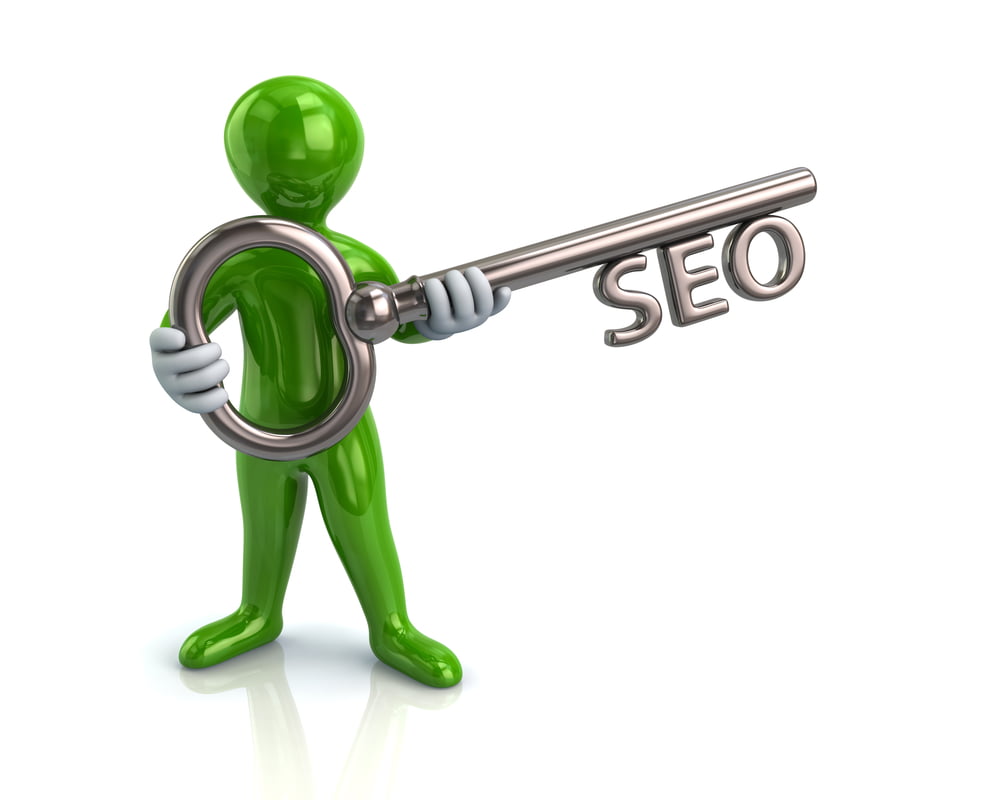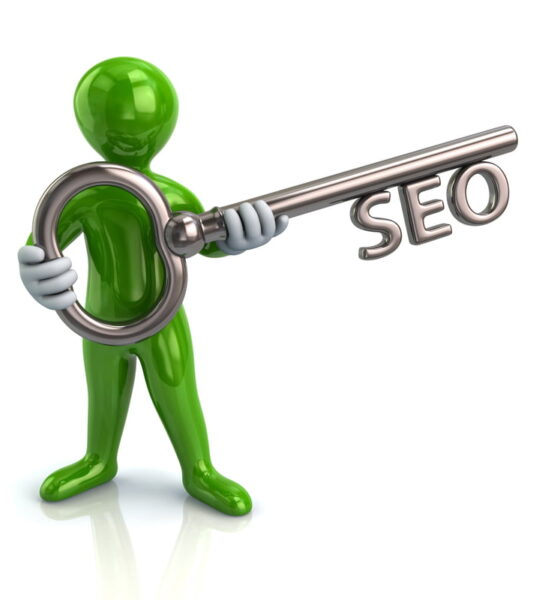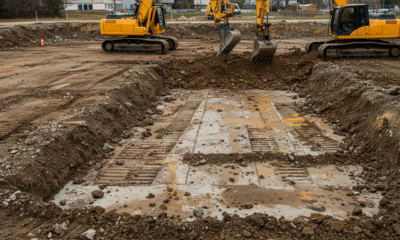

Features
Eco-Friendly Ecommerce Shops Must Leverage Offsite SEO
Are you trying to start an eco-friendly ecommerce business? This is one of the best times to ever do so.
The number of customers seeking environmentally responsible businesses is at an all-time high. Last year, a poll showed that even people that are mostly indifferent about the environment want eco-friendly shipping options. The survey showed that 81% of people would prefer buying from an ecommerce company that used sustainable shipping.
However, while the benefits of running an eco-friendly ecommerce company are more evident with each passing day, entrepreneurs still face certain challenges. One of their biggest difficulties is reaching new customers.
Sustainable ecommerce startups tend to have lower budgets for marketing, so they have to se their resources strategically. One of the best ways for new eco-friendly ecommerce brands to grow their reach is with SEO. They need to invest in offsite SEO to get the most bang for their buck.
SEO Helps Eco-Friendly Businesses
SEO is a great way for sustainable businesses to reach new customers. We will give an overview of the general principles of SEO, before providing some nuances of SEO for green businesses.
There are three main types of search engine optimization (SEO): on-page, off-page, and technical. To ensure your website ranks on Google, you need to focus on tactics that increase organic traffic. This is made possible through off-page SEO. In this article, we will define the three SEO types, explore the importance of off-page SEO, and review several off-page SEO tactics you can employ immediately to help boost your website rankings.
The Three Types of SEO
Here is a look at what each of the three different types of SEO entails.
On-Page SEO
These are the tactics you use on your web pages that are designed to attract search engines to them and help search engines better understand what your web pages contain. The elements that comprise on-page SEO include page content, image optimization, title tag optimization, and much more. If you can see it on the webpage, it is most likely on-page SEO.
Off-Page SEO
Any activities you engage in that feed traffic to your website but originate from sources other than your website are considered off-page SEO. This can include social media marketing, directory submissions, and other strategies.
Technical SEO
This describes the activities that impact the indexing and crawling of your website by search engines. This includes data structure, URLs, page loading speeds, navigational tools, and more.
Off-Page SEO – Why It Matters
Off-page SEO is essentially a tool used to build the domain authority (DA) of your website. Without some sort of DA, it makes it much more difficult for you to outrank competitive sites with higher DA. We all know that sites that are considered high authority rank better than sites with low or no authority, because search engines treat them differently.
It makes sense, too. Search engines will offer high authority sites in search results simply because they rank higher. Off-page SEO helps you to signal to search engines that people reference, share, and trust your site. Link building is one way to do this, but there are many other tactics worth using.
Off-Page SEO Tactics for Green Businesses
Now that you understand the basics of SEO, you should find strategies to use offsite SEO specifically for green businesses. Here is a list of some of our favorite off-page SEO tactics. Use as many as you wish to improve your website ranking.
Tactic #1 – Link Building
Link building continues to be a vital piece of the puzzle for any off-page SEO strategy. However, it is important to understand what links are best for your purposes. High-authority websites should still be your target for linking possibilities. But rather than trying to rank based on the authority site ranking, look at link building in a different way. What you are trying to achieve with link building is closing gaps between your site and your competitors. The three factors to consider with links are authority, unique domain origin, and topical relevance.
You will want to try getting links from websites in the sustainability niche. TreeHugger, EcoWatch and Earth911 are some of the best blogs on sustainability. You will get more SEO credit if you get backlinks from sites like these over lower authority green blogs or blogs that have nothing to do with sustainability.
Tactic #2 – Brand Building
One way your brand awareness increases is through an increase in brand searches. This is a type of search that includes your brand name, some of your products, or your domain name. You can see how your brand searches have changed over time by using the Keyword Overview Tool. Another reason to build your brand is something called brand search engine result pages (SERPs). These are the search results a user sees when they search your brand name. As your brand builds, you will earn links and mentions from sources you didn’t know existed, and it all helps.
Tactic #3 – Content Marketing
Off-page SEO examples of content marketing include such things as a guest post you write and have published on someone else’s website or infographics you have created and have published somewhere other than your website. Surveys, studies, and research papers that you create and are used on other websites all count as off-page content marketing. The same applies to whitepapers and eBooks you write and publish. The best thing about content marketing is that you can combine it with other off-page SEO tactics for much more impact.
You will want to write articles that are as close to the nature of your business as possible. You can get SEO value by writing articles on sustainability in general. However, it is a lot better to be more specific. If you sell energy efficient LEDs, then you can write an article about lowering your carbon footprint by reducing energy use and linking to your website from there.
Tactic #4 – Social Media
As noted by Digital Authority Partners, 93 percent of regular internet users log into social media. Using social media to get your brand in front of internet users and where they spend time online is essential. Considering that social media platforms are sort of a search engine, it is vital to have a presence in this corner of the internet. You can establish business pages on all the social media feeds you can handle and link to your website. You have to look at social media as a viable tool to spread the word about your brand, your products, your company.
Tactic #5 – Reviews
Your online reputation is going to impact your business. Surveys indicate that 89 percent of people will look through online reviews before they will purchase a product. This means that reviews pack quite a lot of influence online. But what do online reviews do in the big picture? It turns out that they help businesses position themselves as brands. Good reviews that appear on third-party platforms get all the credit for this. What you need to know is that positive reviews increase conversion rates, and assist in building trustworthiness and brand awareness.
Tactic #6 – Guest Posting
Guest posting is basic. You write some new content that has information and value and you submit it to someone else’s website for publication. The result should be content on a website where it helps visitors in some way, and you earn traffic through links to your website contained in the content. If you get enough content published elsewhere, you may become an authority on the topics you guest post about. All of this helps your website, brand, business, and overall digital footprint. Guest posting is well worth the effort.
Again, you will want to try writing guest posts on sites about sustainability. They will have more SEO benefit than other sites. However, you can write guest posts on sites in other niches as long as you make sure the article is relevant to your niche.
Off-Page SEO is Vital for Eco-Friendly Ecommerce Brands
Running an eco-friendly ecommerce business will be difficult if you don’t expand your reach as much as possible. You will need to leverage SEO to accomplish this.
Off-page SEO is a lot more than just link building. It is essentially a principle used to focus on optimizing, content creation, and ranking on search engines other than Google. The search engines in this example are social media platforms and other platforms that users can access to learn more about a brand, product, or business.


 Environment12 months ago
Environment12 months agoAre Polymer Banknotes: an Eco-Friendly Trend or a Groundswell?

 Features11 months ago
Features11 months agoEco-Friendly Cryptocurrencies: Sustainable Investment Choices

 Features12 months ago
Features12 months agoEco-Friendly Crypto Traders Must Find the Right Exchange

 Energy11 months ago
Energy11 months agoThe Growing Role of Solar Panels in Ireland’s Energy Future



























